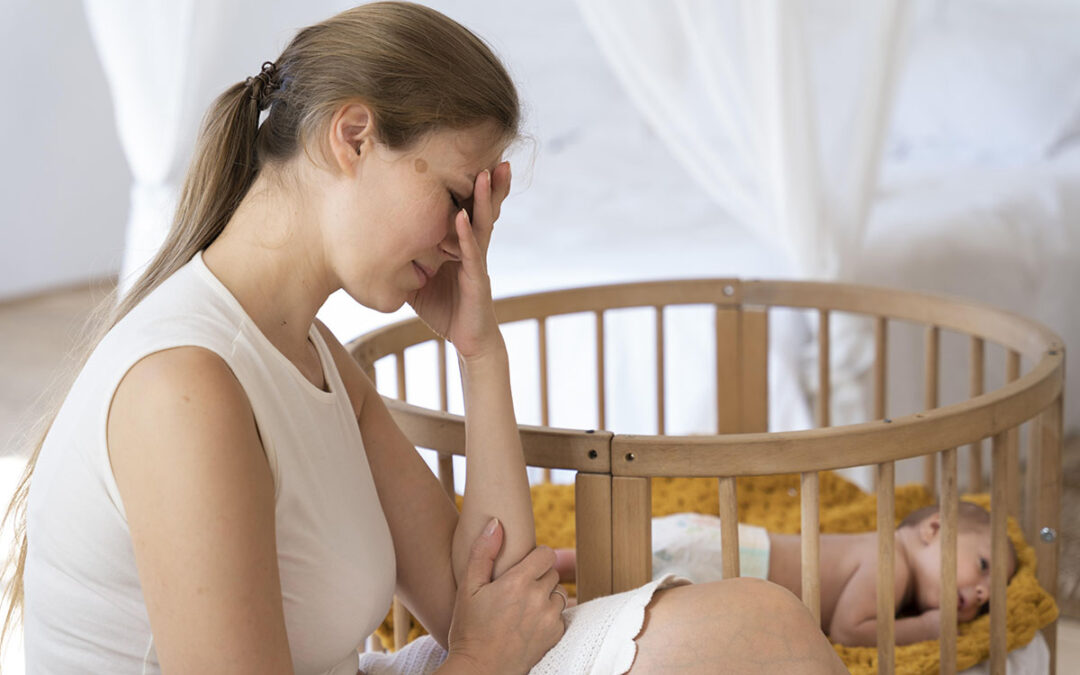Photo Credit: Freepik.com
Postpartum depression (PPD) is a mental health condition that can occur in some women after giving birth. It is characterized by a combination of physical, emotional, and behavioral changes. The symptoms of PPD can range from mild to severe, and they can interfere with a woman’s ability to care for herself and her baby.
The exact cause of PPD is not fully understood, but it is thought to be a combination of factors, including hormonal changes, social stressors, and psychological factors. PPD can be treated with medication and counseling.
The chemical changes that occur after delivery involve a rapid drop in hormones such as estrogen and progesterone. These hormones increase tenfold during pregnancy, and then they drop back to their pre-pregnancy levels within a few days after delivery. This drop in hormones may be one of the factors that contribute to PPD.
PPD is a treatable condition, and with the right help, you can recover and enjoy your new role as a mother. The symptoms of PPD can range from mild to severe.
FACTS:
- PPD affects about 10-15% of women after childbirth.
- The symptoms of PPD can include:
- Depressed mood
- Loss of interest in activities
- Changes in appetite
- Difficulty sleeping
- Fatigue
- Irritability
- Thoughts of harming oneself or the baby
- PPD can be treated with medication, counseling, or a combination of both.
In addition, women with PPD may also experience:
- Being uninterested in their baby or feeling like they are not bonding with them
- Crying all the time, often for no reason
- Severe anger and irritability
- Loss of pleasure
- Feelings of worthlessness, hopelessness, and helplessness
- Thoughts of death or suicide
- Thoughts of hurting someone else
- Trouble concentrating or making decisions
- Obsessive-compulsive disorder (OCD) symptoms that are new or have worsened
- Panic disorder symptoms
- Untreated PPD can be dangerous for new moms and their children.
Here are some signs that it is time to seek professional help:
- The symptoms of PPD persist beyond 2 weeks.
- You are unable to function normally or cope with everyday situations.
- You have thoughts of harming yourself or your baby.
- You are feeling anxious, scared, and panicked most of the day.
Here are 8 ways to deal with postpartum depression:
- Get support from your loved ones. Talk to your partner, family, and friends about your feelings. They can offer emotional support and help you take care of yourself and your baby.
- Join a support group. There are many support groups available for women with PPD. These groups can provide a safe space to talk about your experiences and connect with other women who understand what you’re going through.
- Take care of yourself. Ensure you get enough sleep, eat healthy foods, and exercise regularly. These activities can help improve your mood and energy levels.
- Practice relaxation techniques. There are many relaxation techniques that can help relieve stress and anxiety. These techniques include yoga, meditation, and deep breathing exercises.
- Seek professional help. If you think you need help to manage your PPD, seek professional help from a therapist or counselor. Don’t be afraid to ask for help. It’s important to remember that you’re not alone in this. There are many people who can help you, so don’t be afraid to ask for help.
- Be patient with yourself. It takes time to recover from PPD. Don’t expect to feel better overnight. Just focus on taking things one day at a time.
- Celebrate your successes. When you do something challenging, take a moment to celebrate your success. This will help you stay motivated and on track.
- Talk to your doctor. Postpartum depression is a medical condition, and it’s important to get help from a healthcare professional. Your doctor can diagnose PPD and recommend treatment options.
Remember, you’re not alone. Millions of women experience PPD every year. It is important to note that having postpartum depression is not your fault. These feelings and thoughts are totally common mental health conditions that can be treated by a professional. You can also read about returning to work after maternity leave.
If you are concerned that you or someone you know may have PPD, please talk to a healthcare professional or reach out to us we can help you develop coping mechanisms and strategies for managing your symptoms.
– Urveez Kakalia and Sakshi Merai
Reference:
Bruce, D. F., PhD. (2003, March 24). Postpartum Depression. WebMD. https://www.webmd.com/depression/guide/postpartum-depression
Postpartum depression – Symptoms and causes – Mayo Clinic. (2022, November 24). Mayo Clinic. https://www.mayoclinic.org/diseases-conditions/postpartum-depression/symptoms-causes/syc-20376617

